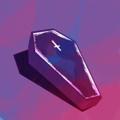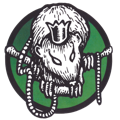Fav book this year!
5 stars
I really loved this book. It felt like the interest and passion in biology that Mikhail Bakunin exhibited in Mutual Aid: A Factor of Evolution but told ask a sci-fi epic@!
analyzing the conditions and contradictions of a human inmate labour camp upon an exoplanet with alien life Tchaikovsky looks at what makes us human, what mutualism and organization mean, and the struggles against domination.
I would liken this to The Dispossessed of Tchaikovsky's catalog and want you all to read it then get coffee with me and talk about the ups and downs.
I really loved this book. It felt like the interest and passion in biology that Mikhail Bakunin exhibited in Mutual Aid: A Factor of Evolution but told ask a sci-fi epic@!
analyzing the conditions and contradictions of a human inmate labour camp upon an exoplanet with alien life Tchaikovsky looks at what makes us human, what mutualism and organization mean, and the struggles against domination.
I would liken this to The Dispossessed of Tchaikovsky's catalog and want you all to read it then get coffee with me and talk about the ups and downs.














